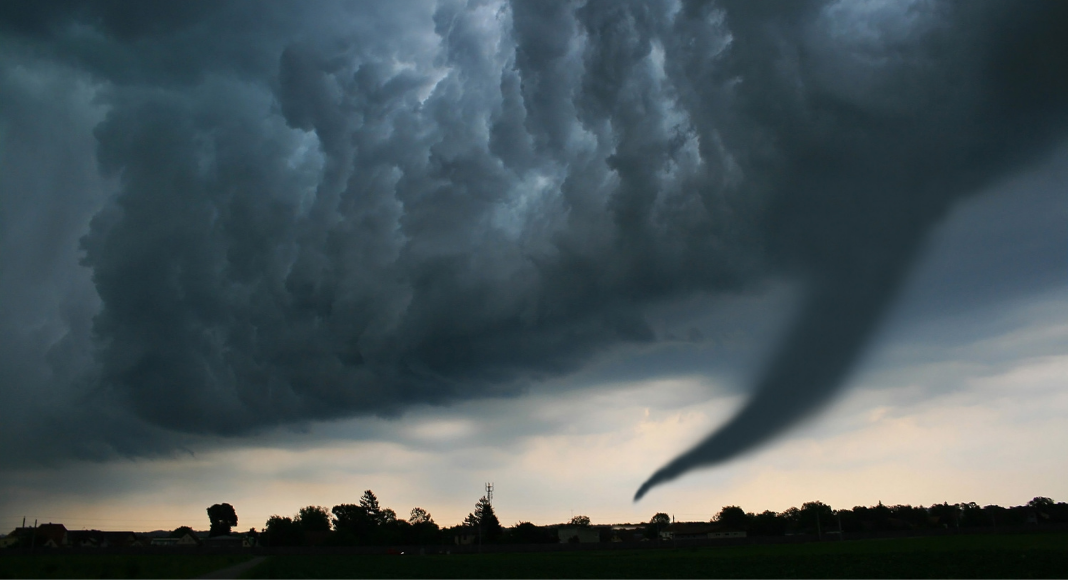As we survey the impact of the tornadoes across our state this week, so many of us are overwhelmed by the damage we’re seeing. If you (or someone you love) have significant damage to your home, the advice below could be exactly what you need right now!
Birmingham mom of 5, Sheryl Turner, has been in that overwhelmed place before. Her family lost their home to a fire in 2005. Now in the wake of these storms, she’s sharing all that she learned with our readers!

Natural disasters are quick, painful, and unforgiving. If you were affected by the tornados and have no clue what to do, you are not alone. Your mind is likely whirling with processing the events, surviving the outcome, dealing with grief, and taking care of your own family. Thoughts may be scattered and incomplete. Many friends wants to help! People have good intentions during this time, but you are vulnerable and often can’t process it all.
Our family has experienced a total loss before. Here is our best advice for how to respond.
Where to start?
1. Take pictures and videos. Walk through every room and open all doors and drawers to the extent safely possible. Download photos and videos to a safe storage site – and have a person outside your family do this as well. (You need backups.) If you cannot take pictures or videos, gather photos from your friends and family members to recreate your house (backgrounds are awesome reminders of what you had).
2. If you want to move belongings, make sure you have photos first.
3. Call your insurance adjuster and plug that number into your frequent contacts. Get the insurance company’s app on your phone. Know what your policy covers! If you are unsure, ask a friend to help you figure out your limits for each category.
4. The insurance company will pay for most things, but they only give you the depreciated value first (very little). As you replace items, they will write you a larger check for the replacement value (if you have replacement insurance). Get the best replacement you can! Unlike when you first started living on your own, you now know what’s important in a house (everyday items like furniture, mattresses, linens, cookware, etc). Keep every single receipt. If possible, scan receipts into your computer.
5. In the beginning you will be tempted to just get survival items, but remember this ultimately comes out of insurance. Try to purchase those initial items sparingly. This is a great area to accept help or donations (for toiletries, school supplies, gas cards, etc).
6. Insurance will pay for the storage of your items, but only store what you truly love and want to keep. Salvage sentimental items only – as everything else can be replaced.
7. Insurance will pay for living expenses while you are out of the house. Use these funds wisely. Negotiate a longer term reduced rate for lodging. Accept meals, gift cards, and help – they will make your insurance funds go further.
8. Consider using one credit card that has benefits (points, cash back, airline miles, etc.) to make your purchases. You can purchase a certain amount of home goods and charge it to that card. Insurance pays you, so you can easily pay it off quickly. Meanwhile, you get the card benefit of that money spent. A little bonus for you!
9. You will also need the receipts for purchase, clean up, repair, living expenses, etc. for the IRS next year. Make sure you have duplicates!
10. If possible, allow someone close to you to coordinate efforts to feed your family and to be your go-to person for questions of how to help. Communicate your needs with that person and allow them to respond to others.
11. If you have children, try to get your students back to a regular routine (remember to get school supplies and books). They need some normalcy outside of the tragedy. Let them visit friends, get some outside tutoring help, or anything that lends itself to encouragement and support for your children.
12. Notify your school/work/church of your situation so they can help.
13. Run to counseling. Take your children to counseling. This is a big deal. You’ve lost so much. Counselors can help you.
Friends and family members, how can you help?
1. Coordinate efforts with the family to provide homemade meals during this difficult time.
2. Buy gift cards – restaurants, gas stations, grocery stores, and clothing stores. These allow families to avoid immediate decision making, and to have the funds to get what they need, as it’s needed.
3. Make sure students have school supplies, backpacks, and books for classes.
4. Check on your friends – but don’t expect quick responses.
5. Offer to take your friends’ kids for the day.
6. Lend a listening ear and help them process.
7. Coordinate efforts with others so that everyone who needs help gets it. Pass along needs as you hear about them.
__________________________
We are so grateful that Sheryl’s family recovered and rebuilt – and that she’s now passing along her advice for other moms in similar situations! Thank you again to Sheryl for this incredible list of helpful actions in the wake of a disaster.












